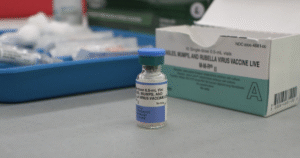Montana Legislation Aims to Combat Child Trafficking Through Education
Efforts to address the troubling issue of child trafficking in Montana may soon shift from data collection to prevention, thanks to a new bill introduced by State Senator Susan Webber. The proposed legislation, Senate Bill 107, seeks to empower schoolchildren across the state with knowledge and skills to recognize and avoid trafficking dangers.
“None of them have addressed prevention. Let’s give our children the tools,” stated Webber, D-Browning, as she addressed the Senate Judiciary Committee. The bill mandates the Office of Public Instruction to create educational programs that would teach students about the risks and signs of child sex trafficking and human trafficking, an initiative aimed particularly at the vulnerable school-age population.
During the committee hearing, Webber presented a poignant visual display featuring images of missing children, highlighting what she and others have termed an epidemic. Statistics from the Department of Justice indicate a concerning overlap: while 45 Indigenous people and 31 children are reported missing, Native individuals constitute a disproportionate 30.6% of missing persons despite only making up 6.7% of Montana’s population.
Sen. Sue Vinton, R-Billings, inquired about the financial implications of the bill, to which Webber responded that it would be an additional module manageable by the Office of Public Instruction. Meanwhile, Sen. Daniel Emrich, R-Great Falls, expressed concern about diverting focus from traditional academic subjects.
The committee has yet to decide on the bill, but supporters argue it is crucial for preventing children from falling victim to trafficking, potentially being exploited for drugs or forced into modern-day slavery. Patrick Yawakie, representing several indigenous communities, emphasized that traffickers often target children as young as nine, exploiting vulnerabilities at home.
“Having an educated community in sex and human trafficking for elementary and secondary schools helps all involved with a clear understanding for how to be responsible for each other,” Yawakie stated, underscoring that the bill’s protective measures extend to all Montanans, not just Native American students.
Imani Kindness of the Montana Budget and Policy Center highlighted a dramatic increase in trafficking cases, from seven in 2015 to 143 in 2023, citing data from the state Department of Justice. Sharon Kickingwoman of the ACLU of Montana pointed out that OPI is uniquely positioned to spearhead the solution to this pervasive issue.
Sen. Mary Ann Dunwell, D-Helena, noted that signs of trafficking are often overlooked and spoke in favor of the bill. She mentioned a similar proposal she supports to increase awareness among bus drivers.
Ria Bahadur, a Stanford University student and author of the bill, stressed the urgency of educating children, noting that over 45% of trafficking victims are minors attending school, predominantly aged 12 to 18. Bahadur urged the committee to act, remarking, “Montana is known as the truck stop state in sex trafficking circles,” a reputation she hopes empowered youth can help change.
Keaton Sunchild of Western Native Voice acknowledged the higher rates of missing youth on reservations, asserting that SB 107 is a fitting legislative response to protect children. “This bill is a real, tangible solution that does that,” Sunchild affirmed.






